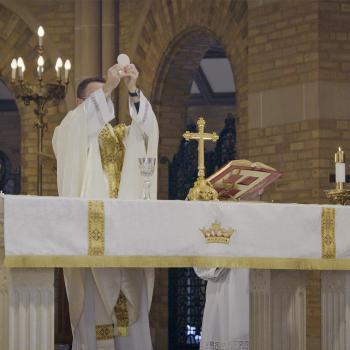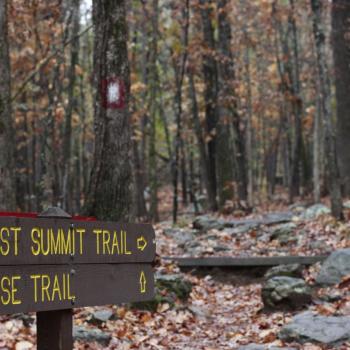My understanding about courage was transformed by a conversation with an ex-Special Forces guy I met in the late 1980s, at a meditation program at my teacher's ashram.
Scott (a name I've given him because I can't for the life of me remember his real one) had spent twenty years as a covert operative profiled for hyper-dangerous missions. He was a real-life version of a Nelson DeMille character—one of those guys who spent his life sneaking into Soviet embassies in places like Cambodia to steal secret papers. Then the Cold War ended, and he went home to someplace like Pennsylvania. There, he discovered that his formerly hard-drinking parents had gotten sober, joined AA, and wanted Scott to go to Al Anon, the 12-step program for relatives of alcoholics.
"What you have to realize," he said, "is that in all my years in the Special Forces, I'd never been physically afraid. I loved danger, and I was really good at it. Guys like me have what the Marine Corps psychologists call throwaway lives, meaning the person doesn't really care whether they live or die. But when I walked into that meeting, I was so terrified that I couldn't stay in the room."
Scott hadn't let it rest there, he told us. He had, in the language of the self-help movement, faced his fear and done it anyway, not only going back into the AlAnon meeting, but turning up a few months later at the ashram of an Indian guru—an act that for him was almost as brave as jumping off a cliff would be for me.
Scott's story redefined my understanding about courage. I'd always thought of courage as synonymous with what hard-boiled novelists used to call "guts." In other words, I'd assumed that if you were unafraid of physical harm, you were basically, unafraid. Talking to him, I realized three things.
First, courage and fearlessness are not the same—in fact, without fear, we wouldn't need courage. Courage implies moving through fear.
Secondly, an act which for one person takes tremendous courage, might be someone else's no big deal, or even their day job. For me, doing an unsupported handstand is an act of courage, yet I'm unfazed by stuff that terrifies others—speaking in front of a thousand people without notes, for instance, or facing into my own anger or discomfort.
Which brought up my third recognition: each of us has a different edge. By edge, I mean the psychological demarcation point beyond which lies your personal precipice. Your edge may be the 500-foot drop that makes your knees shake when you face a mountain footbridge. It may be the fear of career suicide that keeps you from speaking out about corporate wrong-doing, or the fear of losing love that paralyzes you when you try to tell your partner that you need to spend more time alone. Your edge can be very subtle indeed; for instance, the moment when your boundaries dissolve in meditation. The point is that each of us, sometime, will be asked to step off the borders of the known world, and do something that really scares us. Courage is that quality of heart that lets us do it.
As you probably know, the English word courage comes from the French coeur or "heart." The Sanskrit word for courage is saurya, which has the same root as the Sanskrit word for "sun." (In fact, many ancient systems associate the sun—heart of the solar system—with the pulsing, radiant muscle that is the center of our circulatory system.) In Ayurveda, they say that the psychological quality of courage is related to the health of our mamsa dhatu—the muscular element in the body—a good argument for strength training, Outward Bound programs, and lots of standing poses. (Oriana Fallaci, the Italian journalist famous for her risky, confrontational interviews with people like Fidel Castro and Ayatolleh Khomeini, noted in an interview that people who have physical courage usually have moral courage.) But I like the heart-image, with its implication that courage comes from the very center of being, the heart, the organ that most directly resounds with the pulsation of life.
Like the heart itself, courage is a lotus with many petals, all of them associated with qualities that even the most ironic of us celebrate. Here are a few of facets of courage: bravery, strength, steadiness, trust, self-reliance, faith, integrity, love. And also, let's be honest, recklessness. In my teens, when I thought the way to conquer fear was to plunge headlong into whatever you were scared to do, I often found myself in situations that a less extreme person would have thought twice about. Still, even though I shake my head at some of the decisions I made, I also see that the recklessness I cultivated in my teens and twenties really did have that heart-full quality that marks any form of truly courageous behavior. At the very least, it developed some courage muscles, some habits of acting in the face of fear that would later allow me to hold steady through some difficult life-choices.





